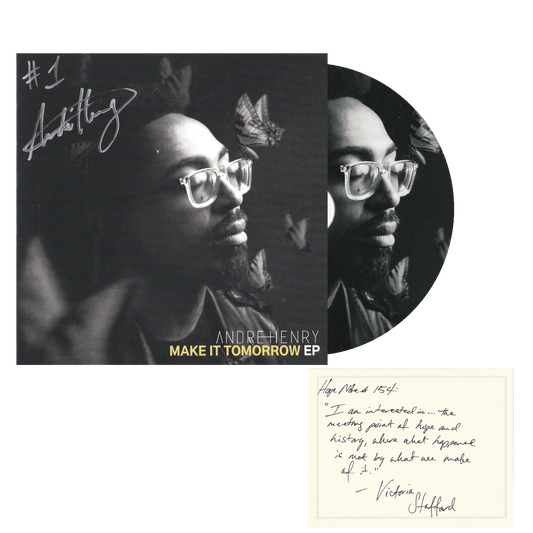
Most activists burn out within two years. I’ve been active for ten now.
Like many activists, I began fighting for change with many problematic ideas about how change occurs, what needs to change, and who I need to become to be a part of those changes. And I’ve wanted to do a series about my mistakes as an activist for a long time.
So here are the top 10 lessons I’ve gleaned from fighting the power over the past decade, based on my mistakes. I hope we can all learn from them together.
10. Never stop learning.
Systems of oppression evolve; so our analyses of those systems must evolve too. Our solutions to different crises depend on our understanding of the crises. The more profound our understanding of the crisis, the better positioned we are to choose effective solutions. So we need to stay open to new information.
9. Resistance is a skill we can build.
A popular misunderstanding presents social movements as always spontaneous, fueled by righteous passion alone, and successful because of the rightness of their cause.
The truth is the opposite. Successful movemements treat resistance as a skill to be built, not just an impulse. They reflect on their past actions to glean lessons about what worked, didn’t work, and why. They study other revolutions to glean the same lessons. They synthesize those lessons into theory and utilize that information for future battles.
8. The Work™ is more than one thing.
There’s a temptation for activists to feel that the work they’re doing is the work everyone should be doing, if they’re serious about change. But we’re fighting multi-faceted problems on multiple fronts.
The problem is personal, legal, institutional, cultural, economic, spiritual, spatial, environmental, domestic, global, relational, familial, even cellular, and we need people fighting on every front. Don’t let anyone tell you that the work you’re drawn to doesn’t count or matter.
7. Shared pain isn’t the same as solidarity.
Not every who is mad about the problem is interested in being part of the solution. So be careful who you trust.
6. Political purity is a fiction.
The demand for purity is a big problem in social justice pop culture.
We trash people for making mistakes — like, literally call them “trash” and even discard them. We try to create enclaves where everyone holds to the same political orthodoxy (“right beliefs”). We throw whole organizations and institutions at the slightest hint of human imperfection.
We need more accountability in our world, but perfection isn’t a reasonable or fair standard of measure. The judging, shaming, and discarding we participate in when people do what humans do — we fuck up — can be thrilling, even intoxicating, until you’re on the receiving end of it.
If perfection is our standard, none of us will be left when the tribunals are over.
5. We must change ourselves to change the world.
The problems in society aren’t all external. The sad tale of many revolutions is that society is often in no better condition under the new regime. Sometimes it's worse. Too often, the insurgents become the new oppressors. These realities warrant self-examination.
We have to contend with the fact that the society we rightly denounce also shaped the way we think and behave. There’s a bit of that society in us. The oppressions we want to dismantle in the world must be dismantled in ourselves, in our homes, in our work, and in our relationships.
4. Character still matters.
There’s a difference between hypocrisy and imperfection. Imperfection is the struggle we all face closing the gap between our values and behavior. Hypocrisy is when you build a public image on social justice values but aren’t even trying to live out those values in your personal life. There are too many activists out there who treat the people in their lives like shit. Don’t be one of them.
3. Hope is a discipline. Practice it.
Hope is knowing that we aren’t passive observers of history but active participants. If we act, we can determine what the next chapter looks like. This knowledge is based on all the people who have fought for change and won before. So keep learning those stories.
2. Center well-being.
Don’t succumb to the pressure to martyr yourself for change. Remember, your body is the first place your experience oppression and is therefore the first — and most immediate — place for you to experience liberation. To resist the assaults of oppression on your soul, psyche, and body — to claim a sense of agency and assert your own dignity — is the basis of all larger efforts for change. You deserve to be well.
Also, your vitality is the basis of your ability to struggle for justice. The well-being of all is also the goal of revolution. Prioritize it.
1. Only love can take us into new territory.
Reject the lie that to be a revolutionary means you must harden yourself to love. Loveless revolutionaries often become the monsters they claim they’re fighting. Take these words from Raoul Vaneigem to heart: “People who talk about revolution and class struggle without referring explicitly to everyday life, without understanding what is subversive about love and what is positive in the refusal of constraints, such people have a corpse in their mouth.”
There are so many more lessons I could’ve written here. But it would’ve felt like a book chapter. I’d love to hear from you. How long have you been fighting for s better world? What one lesson you would you give offer your younger self about this work in hindsight?







